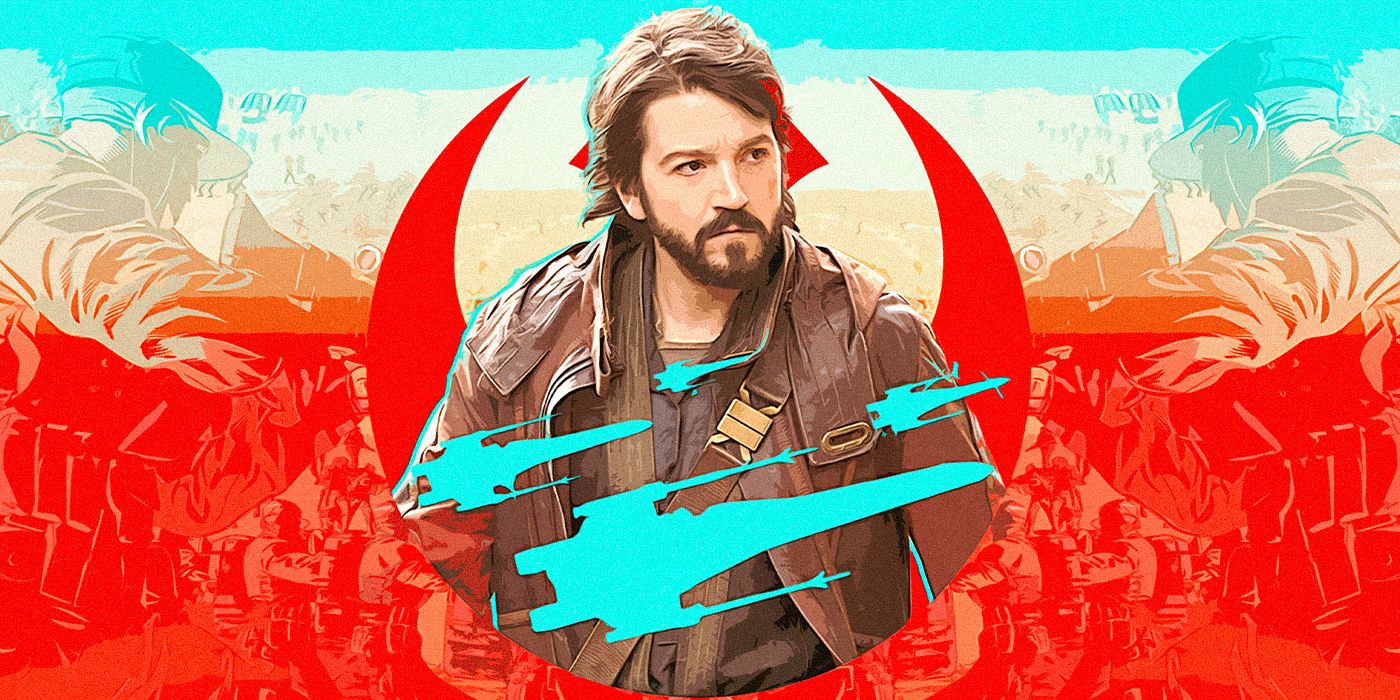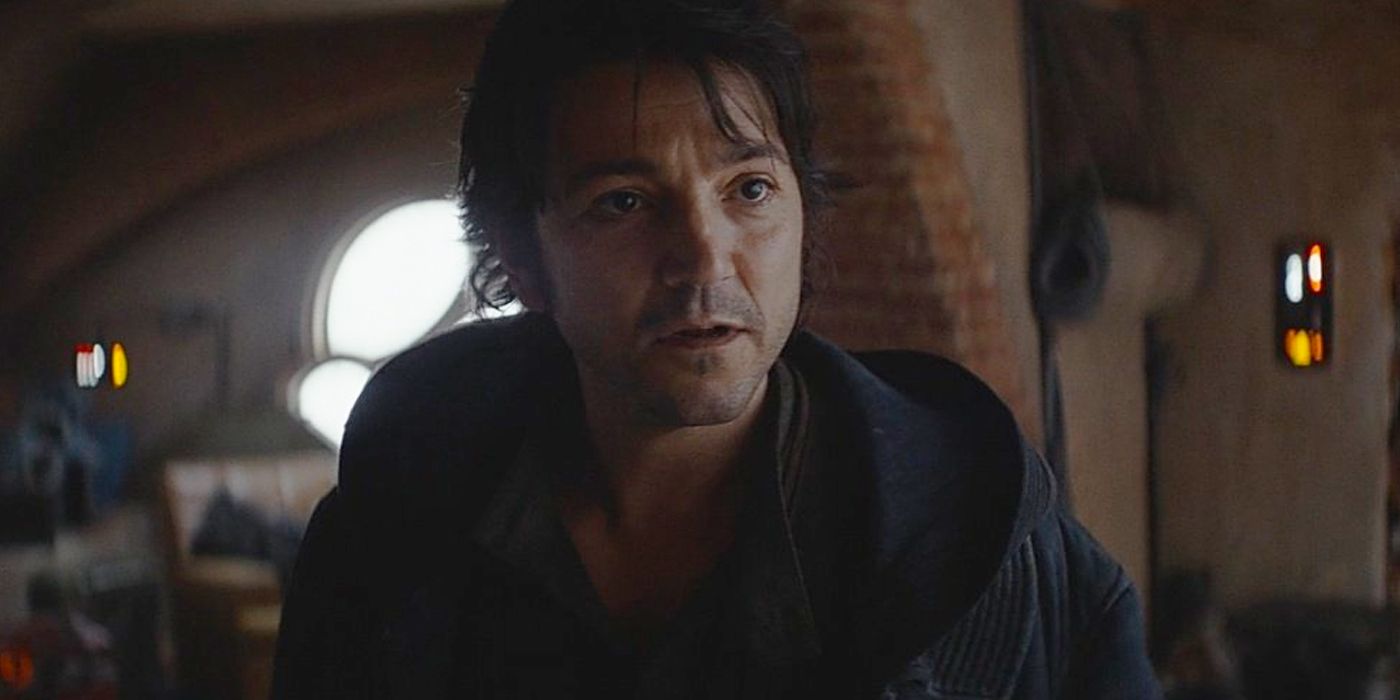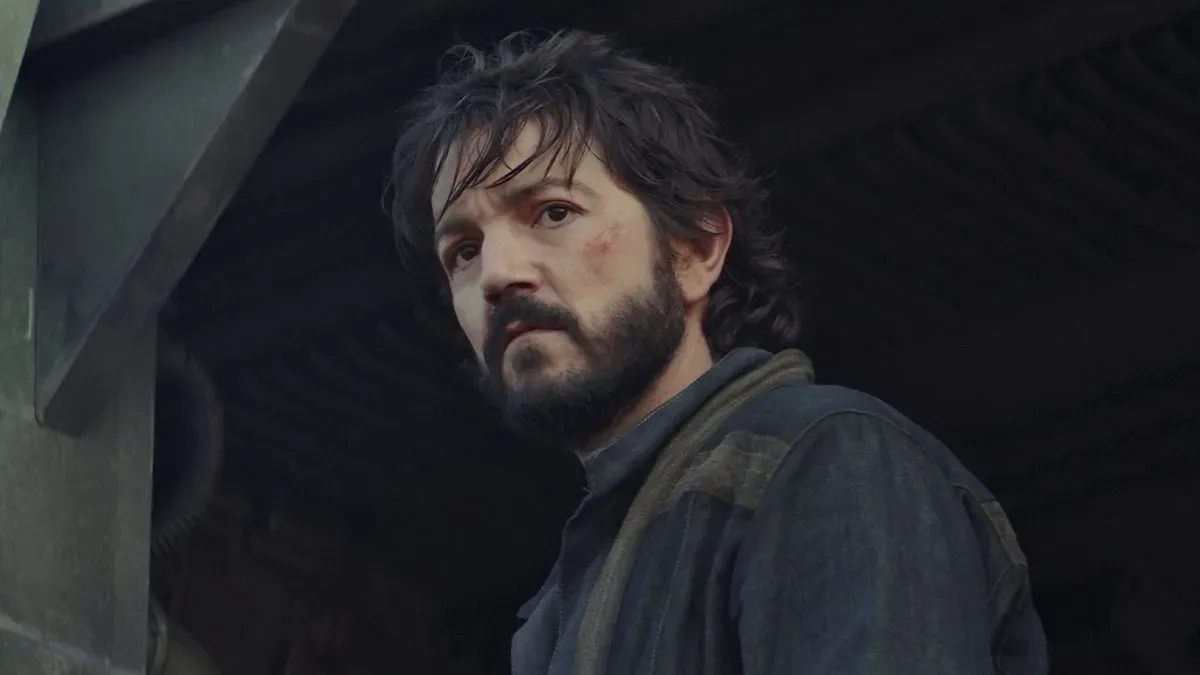Editor's note: The below contains spoilers for Season 1 of Andor.
There was some surprise around the news when Andor was first announced: A prequel to Rogue One starring someone who was arguably one of the movie's least interesting characters. Now that all 12 episodes of Andor's first episode are out, however, it's clear that Cassian Andor continues to be part of a world that's filled with characters whose stories are a lot more compelling than his — but what the Disney+ show reveals is that this time around, it's a feature, not a bug.
In this era of constantly expanding universes built around different franchises, Star Wars seems to have stumbled on a style of storytelling that's needed to truly make expanded universe thrive: a weakening of the protagonist's narrative power to give way to the dozens of tales that might otherwise have been lost completely. Andor's best quality isn't that it's a show about how Cassian Andor was convinced to join the Rebellion (though it manages that very well), but that it's ultimately not about him.
Why Cassian Andor Is Not the Show's Main Character
This is not to knock the performance given by Diego Luna in his role — his portrayal of Cassian Andor is sincere and heartfelt. Consider, however, Andor's role in the three main plots of the movie. While he played a crucial role in the success of the Aldhani heist, it was not his plan, nor was he the sole reason why the plan ultimately worked. From a storytelling perspective, we learn far more about the motivations of his companions than we do about Andor's during those early episodes.
Cassian's driving motivation on Aldhani is to be paid — as soon as he is, he flies away to another part of the galaxy. What we learn about his companions is a lot more complex. We learn of Cinta's (Varada Sethu) need for revenge, Vel's (Faye Marsay) struggle to grow into a leadership role, and the way Skeen's (Ebon Moss-Bachrach) hatred for the Empire breaks down into cynical selfishness and distrust — to say nothing of Nemik's (Alex Lawther) show-stealing philosophies, and his blindingly hopeful observations on the nature of tyranny and rebellion.
On Narkina 5, while Andor was the spark that lit the flame of the revolution, the story wasn't his; it was Kino Loy's (Andy Serkis). A long-time prisoner, it was Kino's loss of hope and subsequent bravery that allowed the breakout to happen — even Andor recognized that Kino was the only person who could inspire the prisoners to attempt an escape. Even in the finale, while everyone's there to either capture, kill, aid, or be rescued by Andor, Cassian himself is just a means to the end of finding out the true identity of Luthen (Stellan Skarsgård). Andor hides in the shadows while the show's most inspiring speeches are given by recordings of the dead: Nemik and Maarva (Fiona Shaw). Andor is the connective tissue between all of these other plots and people, but his actual importance is minimized.
We've seen Star Wars do this before, with The Mandalorian. While Din Djarin's (Pedro Pascal) story is slowly being teased out and becoming more important leading into Season 3, the show's format sees Din as a continual supporting character in other people's stories. That his face is hidden for so much of the series helps drive home the point: the identity of the Mandalorian is less important than the stories he is a part of. Andor is much the same, and it's a choice that breathes new life into the ever-expanding Star Wars universe. This choice justifies the seemingly endless amount of spin-off movies and shows that Disney is intent on putting out — we're getting to see the stories of people that are usually overlooked.
Star Wars Is Moving On From the Skywalker Saga
For too long, the Star Wars movies have been obsessed with the Skywalker clan. In a galaxy containing thousands of planets and trillions of people, everything is improbably centered around this one family who is responsible for both the rise and the fall of the Empire. It made the galaxy a smaller place, and the more backstory the prequels tried to cram in, the less sense it all made, and the more interest waned. The Star Wars: The Clone Wars animated series was the first to truly expand the universe, constantly shifting viewpoints, giving us the stories of people only tangentially connected to the Skywalkers, making the galaxy feel lived in, and it's heartening to see recent shows continuing that tradition.
Instead of putting all focus on a single person and mining their backstory to death, we're seeing characters distilled to the highest narrative impact. It's made clear to audiences just who these people are, and what the strength of their stories are. That their backstories are only implied, and rarely explored only contributes to the richness of the world in which Star Wars is set. We get a sense that these characters have rich, vibrant lives outside what we get to bear witness to. It makes the galaxy feel lived in. There's a diversity of experiences that is usually lost in the shadow of conventional protagonists, and the franchise is better for it.
Here, Andor becomes a witness to these stories, but more besides. The strength of Andor's writing is the fact that he is more than just a blank point-of-view character for audiences to pour themselves into — Cassian Andor provides perspective. His internal shift, from a thief who is only looking out for himself and his loved ones to a man ready to die for the cause, is one that's informed by the stories he's witnessed. His perspective gives the audience a common theme that underlies the various stories we've seen presented through the show, while still affording him a humility that few protagonists get to have. While he was a pivotal part of the series' events, he is still just a cog in something that's much, much larger than he is.
Big-budget shared universes aren't going away anytime soon, despite the fact that the public is growing increasingly weary of their prevalence. To put an obsessive amount of focus on any one person shows a lack of imagination. There is so much to explore in the Star Wars universe, so much left unseen. Shows like Andor open the door for a new style of storytelling that makes them all worth watching again. They give us the illusion of a world that lives and breathes beyond what we get to see. It takes the power of the story away from the improbable few, and into the hands of the people who make the world turn.



